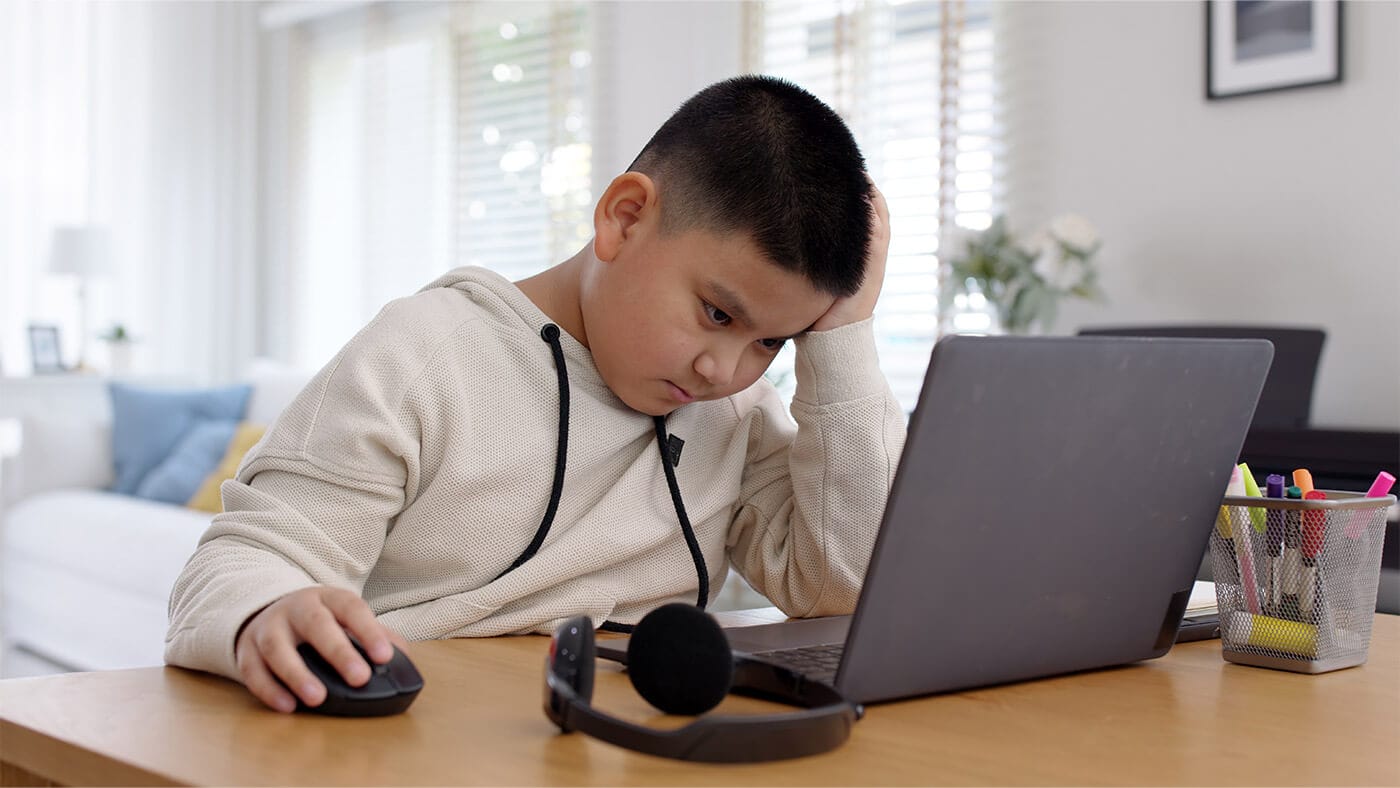Anxiety is often part of growing up and may be experienced in different phases of childhood and adolescent development, including early childhood anxiety. It can be challenging for a parent to recognize the difference between normal worries and anxiety disorders in their children and teens, such as childhood anxiety disorders or other childhood disorders.. However, understanding the differences between everyday worries and chronic anxiety can help you effectively manage your child’s symptoms.
For many kids, everything feels incredibly important. As a result, they may become overwhelmed with the intensity of managing school, extracurricular activities, family responsibilities, social media, and peer relationships. Tweens and teens worry about many of the same things as adults. They may also become concerned about their appearance, the acceptance of their peers, their parent’s approval, and their future prospects. It isn’t easy being a kid.
While periods of heightened emotions like worry, fear, and anxiety are normal, those feelings usually resolve on their own. If anxious feelings become persistent, however, or become so extreme that they interfere with daily life, your child might need extra help carrying the mental and emotional load. It is important to know what age does anxiety start, as early intervention is key to managing anxiety in children.
As a parent, dealing with your child’s anxiety can be difficult, but the good news is that anxiety is highly treatable. There is a great deal you can do to help your child.
How to recognize anxiety in kids
Anxiety can manifest in any number of ways and may look entirely different from one child to the next. You may wonder, “what does anxiety look like in a child?” Common forms of anxiety in children include generalized anxiety disorder, obsessive-compulsive disorder, social anxiety disorder, specific phobias, and panic disorder. Children frequently experience separation anxiety, which might emerge during a sleepover or when left at home unaccompanied for short periods. It can also look like resistance toward going to school or other places with large crowds, like grocery stores. Other kids might experience anxiety when facing specific activities or places, like dentist visits.
What anxiousness looks like in your child won’t necessarily be dramatic. It could present as irritability or aloofness. While anxiety can show up in the form of panic attacks — sudden incidents of intense fear, potentially accompanied by dizziness, increased sweating, heart pounding, shaking, and trouble breathing — it’s not usually that conspicuous. Other signs to look for include the following:
Trouble sleeping or eating
Anger, outburst, or irritation
Difficulty concentrating
Fidgeting or feelings of tension
Regular stomach pain, headaches, or consistent complaining of feeling unwell
Persistent crying or clinginess
Difficulty going to school or sudden poor academic performance
Withdrawal from friends or social activities
Constant reassurance seeking
Fears or excessive worry about routine aspects of their life
Substance use
If your child experiences anxiety symptoms, the research recommends validating their feelings first, then helping them meet their fears with your support. It is neither supportive nor validating to tell a child not to worry. Instead, reassure your child that it’s okay for them to be scared, and emphasize that you will be there to support and help them work through it.
More tips to help your child overcome anxiety:
The source of childhood anxiety is often external: something happening at school or fear about the future. Your instinct may be to shield your child from what scares them, but that may reinforce the anxiety instead of preventing it.
Try to find a way for your child to interface with their fear safely. In the same way that a person with a spider phobia might use cognitive behavioral therapy to engage with and become accustomed to arachnids slowly, you can help your child dip their toe into the shallow end of the world’s scarier pools.
Don’t forget the benefits of quality, non-stressful time with your child. One of the best ways to provide comfort in an unpredictable world is to provide a safe and reliable environment at home.
Your child may also benefit from practicing mindfulness, meditation, professional counseling, or even medication.
Normalize mental health self-care and professional intervention in your household. Modeling how you protect your mental health can help alleviate your child’s negative feelings about getting help for their anxiety.
An anxious child often has difficulties sleeping, so establishing a predictable and relaxing sleep routine can be helpful. Maintain a regular sleep schedule, reduce exercise and exposure to screens close to bedtime, and avoid caffeine.
Encourage healthy social media use and news media consumption.
Build self-esteem by highlighting strengths and unique talents rather than constantly focusing on anxiety. Compliment them on positive character traits like their kindness and consideration for others.
Build resilience by encouraging independent problem-solving. Help them focus on the process instead of always focusing on outcomes. For example, if they do well on a test or assignment, help them see how hard work and dedication play a part.
Build coping skills. You can build your child’s self-confidence and ability by giving them frequent positive feedback. Make small, realistic, and attainable goals. For example, when reaching a goal, you can say, “I’m so proud of how you handled the situation and worked through your anxiety.”
We have a number of resources, including recommended books and apps to help you begin helping your child with both anxious episodes and persistent anxiety. And if you need additional assistance, guidance, or resources, your Families First Pediatric provider can partner with our team of in-house pediatric therapists to identify the right course of treatment for your child or teen.






